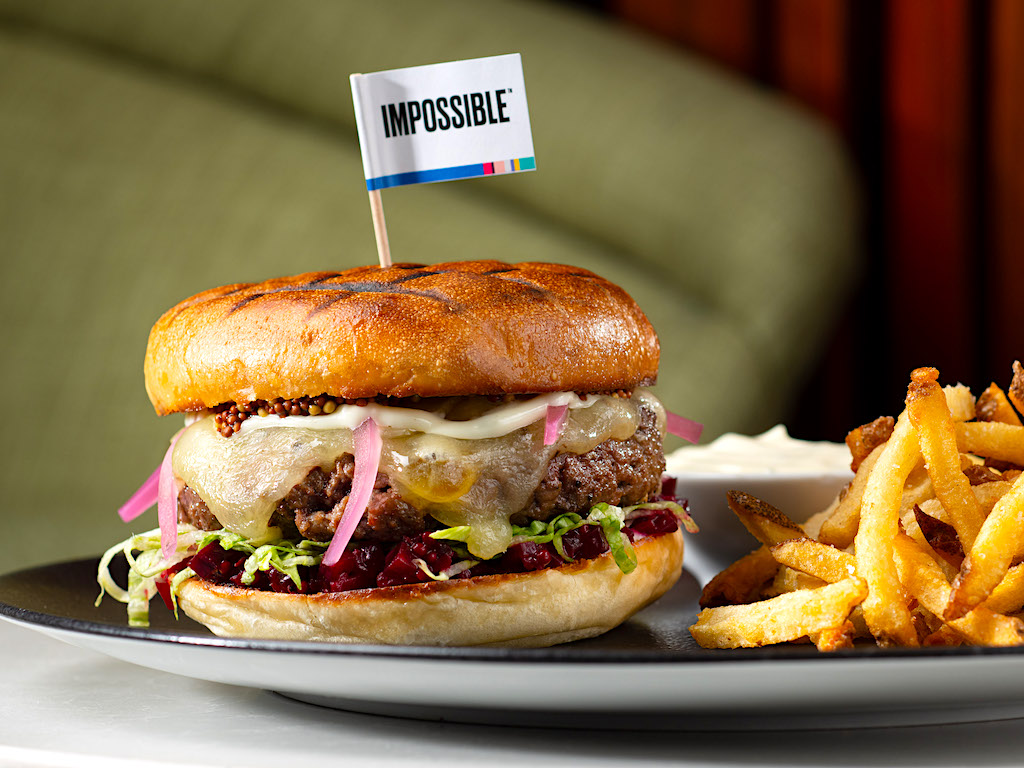4 Mins Read
Food service provider Sodexo has pledged to cut its carbon footprint by 34 percent, by 2025. In a bid to expedite the process, it plans to turn 42 percent of its menus across colleges and universities plant-based. Hundreds of U.S. educational establishments are set to feature new plant-forward menus.
The Humane Society of the United States (HSUS) is working with leading food service distributor Sodexo on the initiative, following former successful collaborations. The two have previously modernised Sodexo’s menus and put animal welfare policies front and centre.

Sodexo turning plant-based
The college and university-specific division of Sodexo is making almost half of its menus plant-based in response to emissions data. 70 percent of the company’s carbon footprint was revealed to be linked to animal-based foods. Plant-based alternatives generate a lighter impact, leading Sodexo to make the switch.
“Any sustainability plan that’s meant to create real change—and not just be greenwashing jargon—will center on shifting from a meat-heavy menu to one that’s focused on plant-based entrées,” Karla Dumas, director of food service innovation at the Humane Society U.S., said in a statement.
“I’m thankful to Sodexo for being a leader in the industry by committing to the tangible changes required to meet greenhouse gas emission goals. By developing a plant-based initiative that includes menu goals, recipe innovation, and customer satisfaction, Sodexo has found a formula for success.”

Creating lasting lifestyle change through cafeteria food
While reducing its own carbon footprint, Sodexo also hopes to inspire younger generations to adopt plant-based living as a personal sustainability tool. Fighting climate change with low impact food production systems and sustainable alternatives to conventional meat and dairy is a viable solution. Younger generations are aware of the benefits and university students have historically proven to be catalysts for change. Bringing the two together is a common-sense solution whereby everybody wins.
Sodexo has stated that it will make the plant-based substitutions through a number of ‘takeover’ programmes where cafeteria chefs will receive fresh training, led by HSUS. To date, 140 institutions have completed such a programme, with students and faculty members encouraged to give feedback.
“It’s important for us to receive feedback directly from the customer as it helps us identify which plant-based dishes will become permanent fixtures on our menus,” Chef Jennifer DiFrancesco, director of culinary innovation for Sodexo Campus, said in a statement.

A steady company move to plant-based foods
A foodservice giant, Sodexo has been making regular moves to embrace plant-based innovation. They have come in response to both consumer demand and a desire to reduce its operational and supply chain carbon footprints.
In 2018, the company launched its “Love of Food” project, in collaboration with HSUS. It saw 200 plant-based meals added to various sector cafeteria menus in the U.S. It was extended to more countries in 2019. Following on from the success of the initiative, focus was placed on developing new menu items using nutritious plant-based foods, as identified by Knorr professional and the WWF-UK. The Future 50 Foods report ranked ingredients according to their nutritional benefit and environmental impact. This resulted in a range of grain and legume-powered dishes entering more than 5,000 Sodexo-serviced locations.
Subsequent use of Impossible Foods meat, JUST Egg and MorningStar Farms’ meat in cafeteria menu items has confirmed Sodexo’s alignment with the plant-based sector. This was further affirmed by the launch of plant-based menus across 200 serviced cafeterias in Canada, last year.
Plant power for the next generation
News of Sodexo’s educational menu switch-up comes as Brazil is implementing a plant-based change of its own. Salvador will serve up more than 10 million vegan school meals every year. Legumes, grains, and vegetables will take the place of environmentally-impactful meat in local dishes given to youngsters. The move is hoped to improve the country’s carbon emissions but also educate children about healthy eating.
Lead photo by Armin Rimoldi at Pexels.





